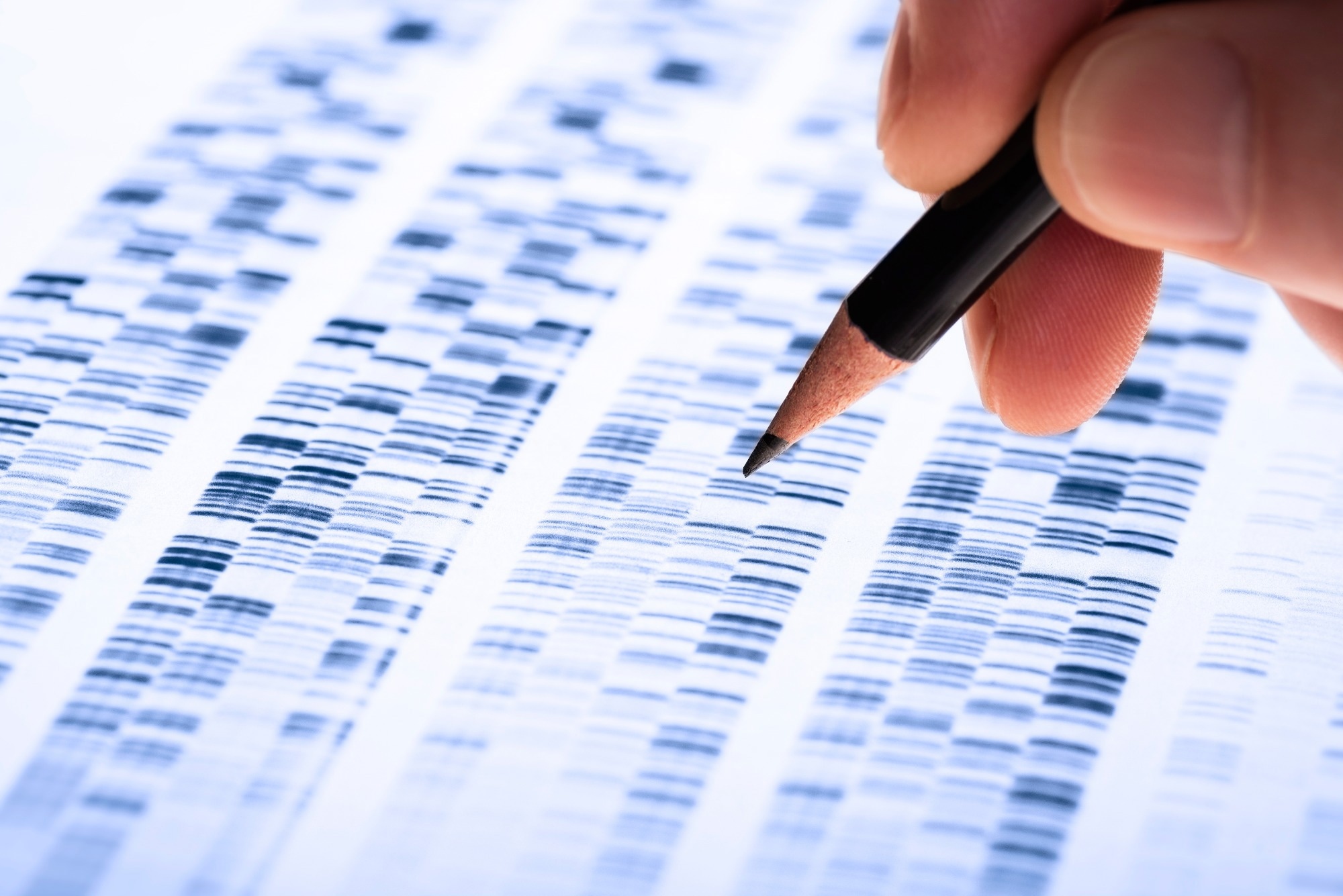In a current research printed in Scientific Reviews, researchers used a number of publically accessible most cancers sequencing mission datasets encompassing 20,331 main tumor genomic sequences representing 41 totally different human cancers to detect and perceive the extent of genetic mutations in 727 recognized most cancers genes and their affiliation with affected person outcomes.
The supply of most cancers gene knowledge was the Catalog of Somatic Mutations in Most cancers (COSMIC) within the Most cancers Gene Consensus (CGC) database, which helped the researchers evaluate the mutational panorama of the most cancers genes recognized on this research with recognized gene annotations and derive novel insights into the extent to which they co-occur or are unique in tumors of varied tissues of origin and their affiliation with affected person outcomes.
 Research: Mutational panorama of cancer-driver genes throughout human cancers. Picture Credit score: gopixa/Shutterstock.com
Research: Mutational panorama of cancer-driver genes throughout human cancers. Picture Credit score: gopixa/Shutterstock.com
Background
Mutations in six courses of most cancers genes, oncogenes, cell floor receptors (CSRs), tumor suppressor genes (TSGs), phosphatases, kinases, and transcription components (TFs), characterizes most cancers; nevertheless, extra importantly, they qualitatively or quantitatively alter the perform of those genes and the proteins encoded by these genes.
Such disruptions manifest as adjustments in mobile habits, e.g., elevated genomic instability and proliferative signaling. Research have additionally linked mutations in some oncogenes to poor medical outcomes in sufferers, poor survival, recurrent tumors, and predictive biomarkers of tumors’ response to most cancers medicine.
Prior to now few years, research have recognized 1000’s of gene mutations concerned in oncogenesis, and most of the proteins encoded by these genes are well-recognized drug targets.
This knowledge covers just a few most cancers varieties and never all, elevating the necessity for a complete evaluation of the extent to which these most cancers genes get altered in all most cancers varieties, inside every most cancers, and their tissues of origin.
Concerning the research
Within the current research, researchers first compiled a listing of 727 recognized most cancers genes from the CGC database, as described above, which encompassed 383 oncogenes, 379 TSGs, 150 TFs, 75, 9, and 63 kinases, phosphatases, and CSR proteins, respectively.
Subsequent, they screened 138 cancer-related research for whole-exome sequencing knowledge on 41 human cancers totaling 20,331 tumor samples, predominately of breast carcinoma and small-cell lung most cancers samples, 2,585 and 110, respectively.
Additional, the staff summarised the variety of mutated genes occurring in none, <5%, and >5% of the samples of every most cancers sort. Moreover, they calculated the mutation frequency of every most cancers gene and assessed the extent to which genes throughout all six classes of most cancers genes mutate throughout all human cancers.
Lastly, the researchers got down to discover the extent of co-occurrence and mutual exclusivity of non-synonymous somatic gene mutations within the mutational panorama of all of the recognized most cancers genes.
Outcomes
The research outcomes revealed non-synonymous mutations in all recognized most cancers genes, suggesting that a number of cell signaling elements and processes are concerned in oncogenesis.
Particularly, the findings pointed in direction of the essential function performed by cytoplasmic enzymes, nuclear proteins, and cell floor receptors in cell signaling pathways altered throughout most cancers.
Moreover, the researchers famous that samples harbored totally different driver mutations, and their distribution inside every most cancers sort additionally diverse, suggesting that every affected person exhibited a unique set of genetic mutations that perturbed their oncogenic pathways.
As an example, drive mutations in lung most cancers and melanoma are epidermal progress issue receptor (EGFR) and v-raf murine sarcoma viral oncogene homolog B (BRAF) mutations, respectively; their discovery, thus, helped the researchers develop focused therapies (e.g., gefitinib and erlotinib for lung most cancers sufferers) that improved affected person survival and high quality of life in comparison with chemotherapy.
So, first, clinicians want to know the mutational profile of every most cancers affected person after which provide them focused and customised therapy.
Intriguingly, solely 5% of most cancers genes get mutated in lots of cancers varieties, e.g., thyroid carcinoma, reinstating the notion that most cancers gene mutations alone don’t drive oncogenesis and would possibly contain chromosomal/epigenetic adjustments, mutations within the non-coding genomic areas, microsatellite instability, DNA copy quantity variations, and messenger ribonucleic acid (mRNA) transcription abundance, to call just a few. Thus, most cancers researchers must also pursue these areas looking for most cancers genes.
Conclusions
To conclude, given the restricted range and availability of genome sequences from most cancers sufferers and the sparsity of gene mutations, the seek for extra extensively efficient most cancers medicine and biomarkers inside every most cancers sort is sluggish.
But, the researchers found that in gene pairs particular to some cancers, the co-occurring mutations had been 378 instances extra doubtless than unique mutations (284,709 vs. 796), demonstrating that genes concerned in oncogenesis pathways usually tend to co-mutate.
These mutations might facilitate the invention of extensively relevant therapeutic targets and biomarkers of tumor aggressiveness for every type of tumors.
These endeavors would require new molecular instruments that rapidly look at the huge quantity of genomics knowledge accessible, unraveling the influence of each attainable mixture of most cancers gene mutations. It could signify a leap in precision oncology, the place sufferers would obtain tailor-made most cancers therapy primarily based on the genetic profile of their most cancers.
